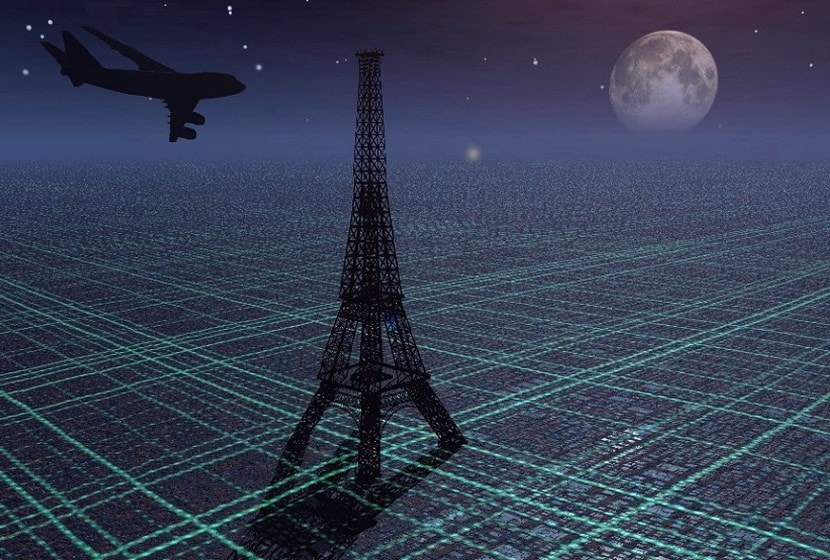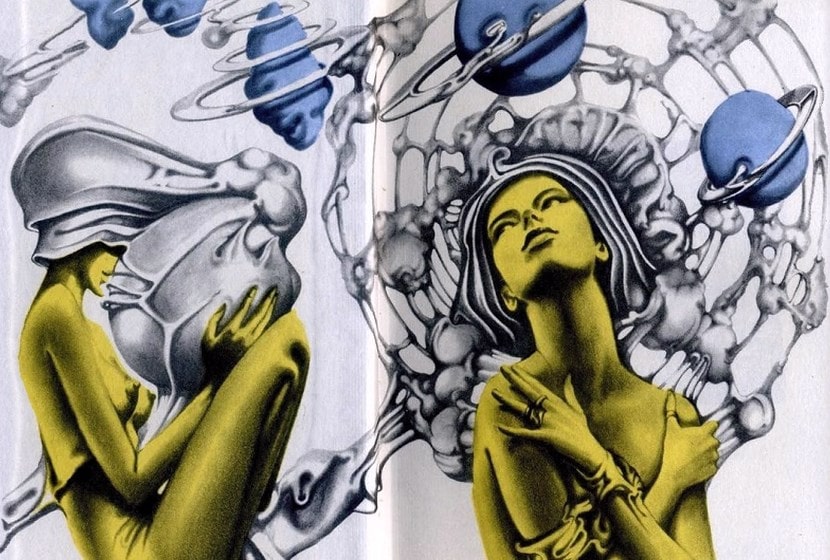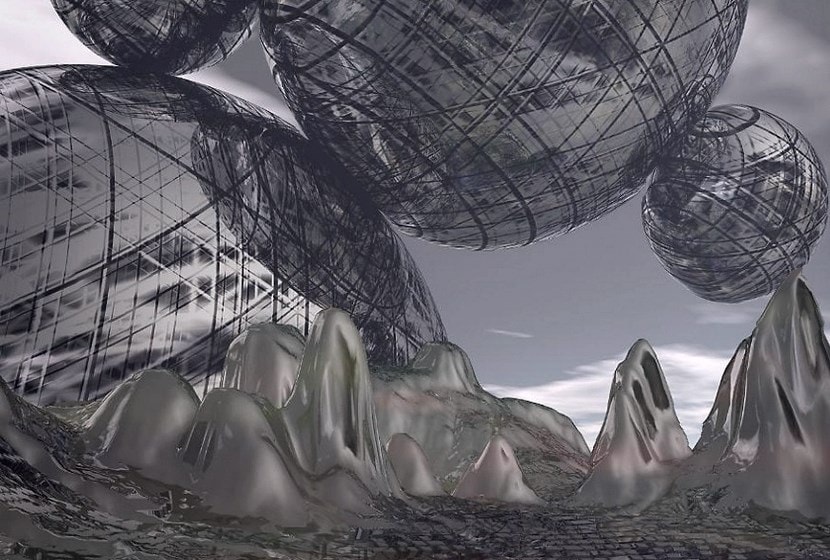Les progrès de la science laissent aujourd’hui nos sociétés face au sentiment d’être à la croisée des chemins : des ruptures technologiques sont annoncées (nanotechnologies, biologie de synthèse, etc.) au moment où nos modèles de croissance économique semblent voués à se heurter aux limites physiques et environnementales de la planète. Alors que se multiplient les débats quant au modèle de développement le plus souhaitable, en quoi la science-fiction et les regards qu’elle porte sur notre société peuvent-ils enrichir la réflexion.
En explorant la façon dont elle a évolué depuis sa naissance au XIXe siècle, il apparaît que la science- fiction est un révélateur de notre rapport à la tech- nologie et, au-delà, de notre rapport à l’autre. En témoignent les nombreuses interrogations sur ce qui nous définit en tant qu’humains, dans des œuvres telles que Blade Runner (P.K. Dick, 1966), Ghost in the Shell (M. Shirow, 1989), ou encore Le cycle des Robots d’Isaac Asimov.
 De fait, les œuvres de SF sont indissociables du contexte socio-économique dans lequel elles ont été produites. Elles sont le reflet des questionnements de leurs contemporains, de leurs craintes et de leurs espoirs, projetés dans un monde futur ou dans un présent alternatif. Peur de l’apocalypse nucléaire (La Planète des singes, Schaffner, 1968), prise de conscience de la finitude des ressources (Soleil vert, H. Harrison, 1966), questions éthiques soulevées par les biotechnologies (Bienvenue à Gattaca, Niccol, 1997) ou encore angoisse d’une catastrophe climatique (Le Jour d’après, Emmerich, 2004) trouvent ainsi un écho au fil du temps dans la littérature et le cinéma d’anticipation.
De fait, les œuvres de SF sont indissociables du contexte socio-économique dans lequel elles ont été produites. Elles sont le reflet des questionnements de leurs contemporains, de leurs craintes et de leurs espoirs, projetés dans un monde futur ou dans un présent alternatif. Peur de l’apocalypse nucléaire (La Planète des singes, Schaffner, 1968), prise de conscience de la finitude des ressources (Soleil vert, H. Harrison, 1966), questions éthiques soulevées par les biotechnologies (Bienvenue à Gattaca, Niccol, 1997) ou encore angoisse d’une catastrophe climatique (Le Jour d’après, Emmerich, 2004) trouvent ainsi un écho au fil du temps dans la littérature et le cinéma d’anticipation.
La palette de scénarios que la SF explore constitue un véritable outil de réflexion sur les futurs possibles de nos sociétés. En poussant les questionnements au plus loin de leurs conséquences logiques ou réalistes, et en adoptant des hypothèses audacieuses, elle permet d’enrichir la réflexion prospective.
 Ces récits ne sont pas des tentatives de prédire l’avenir, mais une occasion offerte de mettre à l’épreuve différentes trajectoires de développement futures. La SF révèle un certain nombre de défis que nos sociétés devront relever, dont certains sont particulièrement prégnants aujourd’hui : crainte de la pénurie des ressources, angoisse du changement climatique, ou encore impact des applications des biotechnologies à l’homme (augmentation des capacités cognitives, clonage, etc.) ou à son environnement (OGM, etc.). Entre projection prospective et songe romanesque, les récits de science-fiction ont ainsi leur place dans la réflexion collective sur nos choix d’avenir.
Ces récits ne sont pas des tentatives de prédire l’avenir, mais une occasion offerte de mettre à l’épreuve différentes trajectoires de développement futures. La SF révèle un certain nombre de défis que nos sociétés devront relever, dont certains sont particulièrement prégnants aujourd’hui : crainte de la pénurie des ressources, angoisse du changement climatique, ou encore impact des applications des biotechnologies à l’homme (augmentation des capacités cognitives, clonage, etc.) ou à son environnement (OGM, etc.). Entre projection prospective et songe romanesque, les récits de science-fiction ont ainsi leur place dans la réflexion collective sur nos choix d’avenir.
Les enjeux
Selon Jeremy Rifkin, nous serions à l’aube d’une nouvelle révolution industrielle (1), celle de l’ère postcarbone et de la convergence des technologies de l’information et de la communication. Dans le même temps, les préoccupations sur le devenir de nos sociétés et de notre planète se font de plus en plus prégnantes, et les technologies, qu’elles soient la cause ou le remède de ces inquiétudes, y tiennent un rôle important. À l’heure où nous nous interrogeons sur le chemin à prendre pour concilier développements économique, social et environnemental, et sur la finalité à donner aux connaissances scientifiques dont nous disposons aujourd’hui et disposerons demain, cette analyse vise à alimenter ces réflexions en les situant dans un champ peu exploité : celui de la science-fiction.
Bien qu’à notre connaissance peu de recherches aient été menées dans ce domaine (2), deux idées méritent d’être explorées :
– Première idée, la SF reflète la complexité de notre rapport à la technologie et à autrui, et la manière dont le progrès technique et scientifique modifie les relations humaines et le fonctionnement de nos sociétés.
– Deuxième idée, les œuvres de SF, indissociables du contexte socio-économique de leur époque, sont le reflet des questionnements, des craintes et des espoirs de leurs contemporains (3), projetés dans un monde futur ou dans une réalité alternative (4).
La présente analyse propose d’illustrer ces deux axes par une approche chronologique.
Elle explore les différents âges de la SF, de ses débuts jusqu’à aujourd’hui, et tente de mettre en lumière le contexte à la fois scientifique et socio-économique de chaque époque.
Première partie : du milieu du XIXe siècle à la Première Guerre mondiale / Le triomphe du progrès, les premières craintes d’une raréfaction des ressources et les dérives de la théorie de l’évolution
 1 – L’idéal du progrès : le positivisme de l’ingénieur face à ses doutes
1 – L’idéal du progrès : le positivisme de l’ingénieur face à ses doutes
Même si de nombreux récits plus anciens peuvent être considérés comme précurseurs de la science-fiction, ce genre naît véritablement au XIXe siècle, lors de la première révolution industrielle.
Elle se développe d’ailleurs dans les deux berceaux historiques de la transformation économique et sociale que représente cette révolution : l’Empire britannique, pays industrialisé et grande puissance coloniale, et la France, hôte en 1889 de la dixième exposition universelle, qui voit son activité économique portée par le développement du chemin de fer ou le lancement des grands travaux du baron Haussmann, qui fait de Paris une ville moderne. L’époque est au débat relatif au progrès technologique et à la validité de la vision saint-simonienne, doctrine fondatrice de la société industrielle. La SF, très liée à la société occidentale, reflète également son goût pour la rationalité, son idéal de progrès conduisant à l’amélioration de la condition humaine, mais aussi le fonctionnement de la consommation de masse.
 Dans la littérature francophone, le genre naît ainsi avec les œuvres de Jules Verne, dont l’éditeur Hetzel vise un large public. Ses Voyages extraordinaires (7) dégagent, à première vue, un grand optimisme sur les perspectives ouvertes par la technologie pour l’exploration de l’inconnu (Vingt mille lieues sous les mers) et le voyage (Cinq semaines en ballon). Son roman De la Terre à la Lune (1865) ainsi que Les Premiers Hommes dans la Lune de l’Anglais H.G. Wells (1901) ont inspiré Le Voyage dans la Lune de Georges Méliès (1902), l’un des premiers films de science-fiction.
Dans la littérature francophone, le genre naît ainsi avec les œuvres de Jules Verne, dont l’éditeur Hetzel vise un large public. Ses Voyages extraordinaires (7) dégagent, à première vue, un grand optimisme sur les perspectives ouvertes par la technologie pour l’exploration de l’inconnu (Vingt mille lieues sous les mers) et le voyage (Cinq semaines en ballon). Son roman De la Terre à la Lune (1865) ainsi que Les Premiers Hommes dans la Lune de l’Anglais H.G. Wells (1901) ont inspiré Le Voyage dans la Lune de Georges Méliès (1902), l’un des premiers films de science-fiction.
Dans ses romans, Jules Verne exprime la formidable foi que la pensée positiviste place dans le progrès : la nature y est une ressource à exploiter par la main et l’esprit de l’ingénieur (8), et les personnages y éprouvent une véritable fascination pour la technique. Mais ses œuvres sont en réalité marquées par un rapport complexe à la technologie, laquelle n’apporte généralement du bonheur qu’à une élite éclairée ou économiquement favorisée, qui la maîtrise et l’utilise pour assouvir ses propres desseins sans chercher à en faire profiter l’ensemble de la société. Les fabuleuses machines imaginées par J. Verne finissent d’ailleurs toutes par être détruites, et définitivement inutilisables à l’issue de l’aventure (9).
 Ainsi, dès ses origines, la SF se construit autour d’un de ses messages centraux : la technologie doit être considérée par l’homme comme un moyen, et non une fin. Son utilisation peut mener à la catastrophe, voulue ou imprévue : un accident de train dans Les Enfants du capitaine Grant (1868), un dessein de vengeance pour le Nautilus du capitaine Nemo (Vingt mille lieues sous les mers,1870). Au cœur de l’industrialisation de l’Europe, la SF apparaît d’ores et déjà comme une forme de questionnement sur le grand récit du progrès.
Ainsi, dès ses origines, la SF se construit autour d’un de ses messages centraux : la technologie doit être considérée par l’homme comme un moyen, et non une fin. Son utilisation peut mener à la catastrophe, voulue ou imprévue : un accident de train dans Les Enfants du capitaine Grant (1868), un dessein de vengeance pour le Nautilus du capitaine Nemo (Vingt mille lieues sous les mers,1870). Au cœur de l’industrialisation de l’Europe, la SF apparaît d’ores et déjà comme une forme de questionnement sur le grand récit du progrès.
 2 – Une crainte naissante de l’épuisement des ressources naturelles
2 – Une crainte naissante de l’épuisement des ressources naturelles
La demande en ressources énergétiques, en particulier de charbon, qui s’était déjà beaucoup intensifiée avec l’augmentation de la population au Royaume-Uni, s’accroît de nouveau avec la montée en puissance de la machine à vapeur, véritable moteur de la première révolution industrielle. Le charbon et le coke remplacent le bois et sont extraits jusqu’à l’épuisement des mines.
Les Indes noires (1877), de Jules Verne, laissent entrevoir la réalisation concrète d’une inquiétude sourde, celle de l’épuisement des ressources énergétiques. Avant la découverte d’un nouveau gisement, le roman s’ouvre sur un monde atone, désertique, depuis que les anciens mineurs sont partis pour se reconvertir dans l’agriculture. Le message est particulièrement angoissant, puisqu’il envisage l’épuisement des ressources et la fin de l’indus- trialisation qui commence alors : inféodé aux machines, à l’industrie, l’homme se révèle vulnérable et se perdra s’il oublie que les richesses minières pourraient un jour disparaître.
 3 – Un rapport à l’autre complexe : détournement du darwinisme et préjugés raciaux
3 – Un rapport à l’autre complexe : détournement du darwinisme et préjugés raciaux
La fin du XIXe siècle est marquée par la primauté croissante de la théorie de l’évolution de Charles Darwin (De l’origine des espèces, 1859). Elle sera cependant transposée à cette même époque par les tenants du « darwinisme social », doctrine politique considérant que la sélection naturelle doit s’appliquer au sein des sociétés humaines. Ces derniers ont notamment soutenu le renforcement d’idéologies telles que le racisme, le colonialisme et l’eugénisme. Francis Galton, cousin et grand admirateur de Charles Darwin, est le principal initiateur du courant eugéniste en Grande-Bretagne à la fin du XIXe siècle. A ppuyée par des scientifiques et des médecins de renom (10), cette pensée devient peu à peu un élément central des débats britanniques jusqu’à la veille de la Seconde Guerre mondiale. La Société pour l’éducation eugéniste, créée en 1907 en Grande-Bretagne et dirigée par Léonard Darwin, fils de Charles, fut à l’origine du vote, en 1913, d’une loi pour l’internement des déficients mentaux. Aux États-Unis, la Californie adopte en 1909 des lois eugénistes qui auront pour conséquences la stérilisation de 65 000 Américains contre leur gré, l’interdiction de certains mariages et l’isolement de populations.
 Dans un roman inspiré du darwinisme, La Guerre des mondes (1898), H.G. Wells imagine une invasion d’extra- terrestres qui, dépourvus de ressources vitales sur leur planète, décident d’investir la Terre. Mais, comme d’autres colonisateurs en leur temps (11), les envahisseurs succombent à un microbe terrien auquel leurs résistances naturelles ne sont pas accoutumées. En réalité, ces Martiens sont le résultat d’une évolution de l’espèce humaine, êtres au cerveau hyper-développé et dépourvus de membres, devenus inutiles.
Dans un roman inspiré du darwinisme, La Guerre des mondes (1898), H.G. Wells imagine une invasion d’extra- terrestres qui, dépourvus de ressources vitales sur leur planète, décident d’investir la Terre. Mais, comme d’autres colonisateurs en leur temps (11), les envahisseurs succombent à un microbe terrien auquel leurs résistances naturelles ne sont pas accoutumées. En réalité, ces Martiens sont le résultat d’une évolution de l’espèce humaine, êtres au cerveau hyper-développé et dépourvus de membres, devenus inutiles.
L’image de cette espèce évoluée menaçant la civilisation occidentale et ses valeurs, et entrant en guerre contre elle, est relativement inédite et s’inscrit naturellement dans la pensée eugéniste en montrant le résultat d’une évolution humaine non maîtrisée. Plus tard, dans de nombreuses œuvres de SF, l’extraterrestre sera ainsi la métaphore de l’autre, qu’il faut combattre (Alien, R. Scott, 1979 ; Independence day, R. Emmerich, 1996), ou, plus rarement, apprivoiser (E.T., Spielberg, 1982).
 Les progrès du génie génétique inspirent par la suite d’autres auteurs de SF, au premier rang desquels Aldous Huxley, frère du biologiste-généticien Julian Huxley, également théoricien de l’eugénisme. Dans son roman Le Meilleur des mondes (1931), il présente une société où la procréation naturelle n’existe plus et où les humains sont créés en laboratoire ; les fœtus évoluent dans des flacons et sont conditionnés en vue de déterminer leur future position dans la hiérarchie sociale.
Les progrès du génie génétique inspirent par la suite d’autres auteurs de SF, au premier rang desquels Aldous Huxley, frère du biologiste-généticien Julian Huxley, également théoricien de l’eugénisme. Dans son roman Le Meilleur des mondes (1931), il présente une société où la procréation naturelle n’existe plus et où les humains sont créés en laboratoire ; les fœtus évoluent dans des flacons et sont conditionnés en vue de déterminer leur future position dans la hiérarchie sociale.
(1) Rifkin J. (2012), La Troisième Révolution industrielle, 380 p.
(2) À noter cependant le projet « Thinking post-ecological societies with science-fiction » de la chaire de responsabilité sociale et environnementale de l’université de Québec à Montréal.
(3) Voir Gyger P., Haver G. (2002), De beaux lendemains ? Histoire, société et politique dans la science-fiction.
(4) C’est le cas notamment des uchronies, qui réécrivent l’histoire à partir de la modification d’un événement passé. (5) Wilson W. (1853), A Little Earnest Book Upon A Great Old Subject.
(6) Leur nom fait référence au papier de mauvaise qualité ( « pulp » en anglais) sur lequel ils étaient imprimés. Le terme apparaît ainsi dans un éditorial d’Hugo Gernsback, premier numéro du pulp magazine intitulé Science Wonder Stories (1929).
(7) Collection de 68 romans dont le premier opus est Cinq semaines en ballon (1863).
(8) Voir notamment la transformation de l’île mystérieuse entreprise par les naufragés guidés par l’ingénieur Cyrus Smith, in Verne J. (1874), L’Île mystérieuse.
(9) Voir Angelier F. (2006), Dictionnaire Jules Verne.
(10) Ronald Fisher, un des fondateurs de la génétique moderne, fut titulaire de la chaire Galton d’eugénisme de l’University College de Londres, Charles Robert Richet, prix Nobel de médecine 1913 fut président de la Société française d’eugénique de 1920 à 1926. Galton et son disciple, Karl Pearson, sont les initiateurs de la biométrie et de la génétique des populations. Les biologistes Julian Huxley (frère d’Aldous Huxley), John Haldane ou Ronald Fisher – tenu pour le fondateur de la génétique moderne –, militèrent quant à eux pour un eugénisme moins dur, que l’on qualifiait de « réformiste ».
(11) Un parallèle entre l’invasion martienne et la colonisation de l’Océanie par l’Europe est explicitement établi par l’auteur dans le premier chapitre du roman. Comme nombre d’auteurs de cette époque, H.G. Wells s’est interrogé sur les implications du darwinisme et de l’eugénisme. Voir notamment l’essai The Work, Wealth, and Happiness of Mankind, 1931.












